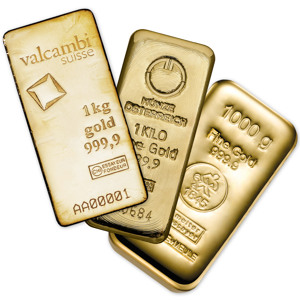Tavex uses cookies to ensure website functionality and improve your user experience. Collecting data from cookies helps us provide the best experience for you, keeps your account secure and allows us to personalise advert content. You can find out more in our cookie policy.
Please select what cookies you allow us to use
Cookies are small files of letters and digits downloaded and saved on your computer or another device (for instance, a mobile phone, a tablet) and saved in your browser while you visit a website. They can be used to track the pages you visit on the website, save the information you enter or remember your preferences such as language settings as long as you’re browsing the website.
| Cookie name | Cookie description | Cookie duration |
|---|---|---|
| tavex_cookie_consent | Stores cookie consent options selected | 60 weeks |
| tavex_customer | Tavex customer ID | 30 days |
| wp-wpml_current_language | Stores selected language | 1 day |
| AWSALB | AWS ALB sticky session cookie | 6 days |
| AWSALBCORS | AWS ALB sticky session cookie | 6 days |
| NO_CACHE | Used to disable page caching | 1 day |
| PHPSESSID | Identifier for PHP session | Session |
| latest_news | Helps to keep notifications relevant by storing the latest news shown | 29 days |
| latest_news_flash | Helps to keep notifications relevant by storing the latest news shown | 29 days |
| tavex_recently_viewed_products | List of recently viewed products | 1 day |
| tavex_compare_amount | Number of items in product comparison view | 1 day |
| Cookie name | Cookie description | Cookie duration |
|---|---|---|
| chart-widget-tab-*-*-* | Remembers last chart options (i.e currency, time period, etc) | 29 days |
| archive_layout | Stores selected product layout on category pages | 1 day |
| Cookie name | Cookie description | Cookie duration |
|---|---|---|
| cartstack.com-* | Used for tracking abandoned shopping carts | 1 year |
| _omappvp | Used by OptinMonster for determining new vs. returning visitors. Expires in 11 years | 11 years |
| _omappvs | Used by OptinMonster for determining when a new visitor becomes a returning visitor | Session |
| om* | Used by OptinMonster to track interactions with campaigns | Persistent |
| Cookie name | Cookie description | Cookie duration |
|---|---|---|
| _ga | Used to distinguish users | 2 years |
| _gid | Used to distinguish users | 24 hours |
| _ga_* | Used to persist session state | 2 years |
| _gac_* | Contains campaign related information | 90 days |
| _gat_gtag_* | Used to throttle request rate | 1 minute |
| _fbc | Facebook advertisement cookie | 2 years |
| _fbp | Facebook cookie for distinguishing unique users | 2 years |
The Digital Finance Era: Why Gold Remains Attractive

As we transition further into the digital age, especially in finance, the allure of gold continues to grow. Despite increasing claims that cash payments and physical assets are obsolete, this article explores why they still hold value today.
Investment Trends in the UK

According to a recent survey by The Royal Mint of more than 2,000 UK investors, this trend is expected to continue as one in four investors (23%) and Gen-X investors (26%) intend to invest in gold this year.
According to the study, precious metals are currently the second most popular asset class after UK equities and funds
Nearly a third of investors (30%) expecting to make an investment in the asset class by 2023. The fact that sixteen percent of investors who have never invested in precious metals intend to do so in the future underscores the asset class’s growing appeal.
The growing attraction of precious metals as an asset class for investors seeking a possible way to hedge against turbulent markets is often the driving force behind the asset class’s rising popularity. The ‘safe haven’ status of precious metals is cited by most prospective investors (53%) as their primary reason for investing, although many (29%) are also enticed by the perception that precious metals are less hazardous than other assets.
The strategy of investing in gold allows individuals to diversify their investment portfolios and minimise risks associated with third-party mediation, opting for balanced security. Importantly, these investments are not made with money stashed under mattresses but with savings previously held in bank accounts.
Cashless Transactions and Independent Savings Management

A significant portion of currency and gold transactions are conducted cashlessly. Due to geopolitical risks and historical banking sector events, some people choose to manage part of their savings independently.
Tavex specialists frequently encounter reasons why people prefer savings in foreign currencies or gold: stability, independence from restrictions, lack of management fees, and absence of third-party risks.
The Digital Euro and Its Implications
Will Digital Currencies Change Savings and Payment Habits?
Analysts question whether the introduction of digital currencies will alter savings and payment habits. The digital euro is expected to be introduced no earlier than 2026. It’s crucial to understand that it will supplement existing forms of money – cash and non-cash – rather than replace them.
The Eurosystem has emphasised the continued importance of cash, supported by plans for new euro banknote designs announced by the ECB in late 2021.
The digital euro will offer new opportunities for those who favour modern technologies and payments and allow some transactions to bypass traditional financial services.
Cash Payments
2022 was a memorable year in the UK for a shift in consumer payment habits. For the first time half of payments (50%) made in the United Kingdom were made using debit cards. The number of cash payments used making cash fell from 15% to 14%.
Potential Impacts of the Digital Euro on Banks and Gold

Concerns About Bank Liquidity and Economic Financing
There are concerns that the digital euro might negatively impact bank liquidity and economic financing
Money held in a single digital euro account won’t be available for financial institutions such as banks to use in financing and liquidity management, unlike current practices.
Digital Euro vs. Gold: A Safe Haven Comparison

The central bank digital currency, the digital euro (CBDC), could compete with gold as a safe haven, particularly if it becomes a primary payment method. If CBDCs are seen as stable investment vehicles, demand for gold might decrease. However, many investors, including institutional ones, are likely to diversify their assets by investing in both CBDCs and gold.
The World Gold Council reported record-high gold purchases by central banks (for example The Bank of England) in 2022-2023, driven by economic uncertainty, geopolitical risks, and inflation among the financial system expected to be in the long term.
Key Takeaways
As digital finance advances, gold’s attractiveness remains strong. Despite claims that cash and physical assets are becoming obsolete, gold’s value endures. In the UK, gold continues to be a preferred investment, particularly among Gen-X investors, due to its ‘safe haven’ status and perceived lower risk.
The shift towards cashless transactions reflects a desire for stability and independence from third-party risks. The upcoming digital euro, expected no earlier than 2026, will supplement rather than replace existing forms of money. Despite potential competition from digital currencies, buying gold as an asset has an enduring appeal which is evident, with record-high purchases by central banks in recent years, which is in turn driving the price of gold.
Amid ongoing economic and geopolitical uncertainties, gold remains a stable, secure, and valuable asset, ensuring its continued relevance in the evolving financial landscape.

















